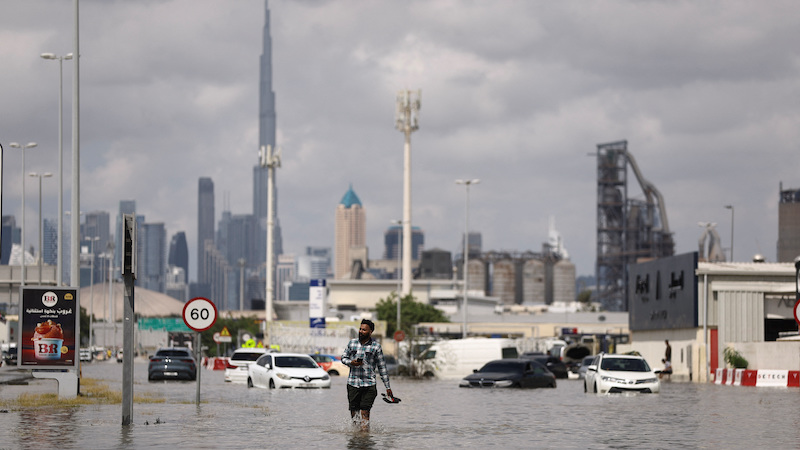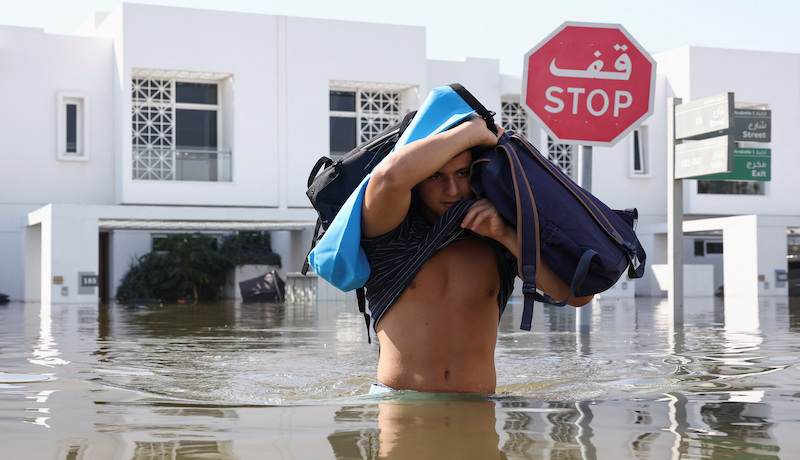At its first meeting, the fund’s board decided to fast-track the selection of its host country so money can be disbursed as fast as possible to disaster-hit people
The board of the loss and damage fund is set to pick its host nation in July as it speeds up the process to ensure hard-hit countries can directly access money to help them recover from the unavoidable effects of climate change.
As the 26-member board held its first three-day meeting in Abu Dhabi this week, discussions centered on the administrative steps needed to get the fund up and running, and giving out money as soon as possible.
Selecting the host country for the board is a priority because only then will it be able to take up legal responsibility and enter into formal arrangements with the World Bank, which governments have asked to host the loss and damage fund “on an interim basis” despite the initial reluctance of developing countries.
The World Bank has until mid-June to confirm it is willing and able to take on this role. The decision rests largely on the bank’s ability to meet 11 conditions, including allowing developing-country governments and organisations working with vulnerable communities to receive money directly without going through intermediaries like multilateral development banks or UN agencies.
“Too many cooks”
Daniel Lund, a loss and damage board member from Fiji, said that overhead costs and management fees from multiple layers of middlemen swallow up a high proportion of development funding in general.
“For small island developing states, it is always too many cooks and not enough ingredients,” he told Climate Home. “A lack of direct access is a particularly unacceptable scenario when it comes to finance for addressing loss and damage because much of what we need to do is direct support [to] the individuals and communities that bear the burden [of climate change]”.
Southern Africa drought flags dilemma for loss and damage fund
Concerns have been fuelled by the World Bank’s lack of experience in working with direct access to communities in its other operations, climate finance experts said. But during the meeting in Abu Dhabi, the bank sought to provide reassurances, indicating its willingness to be flexible on this matter and find a solution.
Renaud Seligmann, the World Bank representative at the meeting, told board members the bank is looking into a model that would “break new ground” and that it is “prepared to innovate and design with you to make it work”.
Host selection fast-tracked
For the World Bank, a primary concern lies with the risks attached to giving money to hundreds of small entities that may have less strict compliance processes. For that reason, it wants the board of the loss and damage fund to take on legal responsibility in case funds are misused. And as that legal personality can only be obtained from the host country, the selection process is being fast-tracked.
Interested countries have until early June to submit their candidacy – Barbados, Antigua and Barbuda, Bahamas and the Philippines have already thrown their hats in the ring. The board is expected to make a final decision at the next board meeting scheduled for July 9-12.
The board is picking up the pace of its work after its first meeting was delayed by three months as a result of developed countries’ failure to appoint their members on time.
A person moves their belongings at a flooded residential complex following heavy rainfall, in Dubai, United Arab Emirates, April 18, 2024. REUTERS/Amr Alfiky
The board was forced to tackle logistical challenges on the final day when stormy weather in Abu Dhabi moved the deliberations online. Scientists have warned that the Arabian peninsula will suffer more heavy rain at 1.5C of global warming than it did in pre-industrial times, and recent floods in the neighbouring city of Dubai shut down the airport and caused major economic damage.
Lund said the prog
Read More


